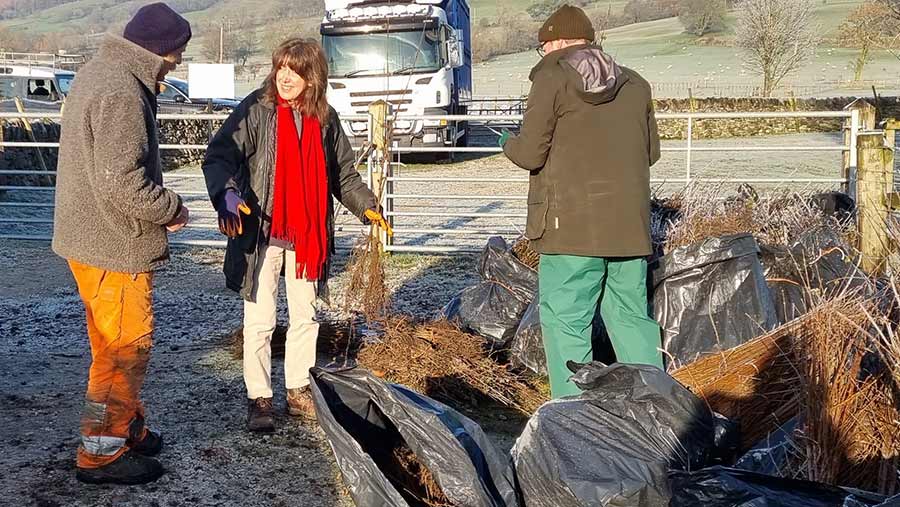Peak District farmers launch hedge-planting drive
 Hedgerow expert Jasper Prachek (left) gives advice to farmer Denise Matthews as she prepares for planting © GWCT
Hedgerow expert Jasper Prachek (left) gives advice to farmer Denise Matthews as she prepares for planting © GWCT Upland farmers in the Peak District are planning to plant 6km of new hedges this winter for nature and carbon capture.
The project, led by the Peakland Environmental Farmers (PEF) environmental co-operative, will see members of Hope Valley Farmers in Derbyshire and Bradfield Farmers Group in Yorkshire plant 31,000 hedge plants and 1,500 trees on their farms this winter.
Both groups are facilitated by independent farm environment adviser Chloe Palmer, who organises training events, visits to other farms and projects to enhance the farmed environment, including the hedgerow creation initiative and an annual wading birds survey.
See also: Opinion: Help needed to plant the right tree in the right place
Together, they will establish more than 6km of new hedgerow, creating valuable habitat corridors for wildlife, sequestering carbon and enhancing the landscape. This, combined with 10km already planted and 8km planned for next year, will make 24km in just four years.
PEF was launched in 2023 in partnership with the Game and Wildlife Conservation Trust (GWCT), representing 77 farmers covering 40,000ha across the Dark Peak.
Tom Noel, farmer and PEF chairman, said the project demonstrates that with the right support, collaborative action for the environment by farmers can achieve nature recovery.
“As a farmer-led environmental co-operative we plan to plant more hedgerows each year as part of a broader conservation plan, thereby hopefully meeting and beating government targets on biodiversity, carbon, clean air and water,” he added.
“We will achieve this at the same time as welcoming more than 13 million visitors to our farms each year and contributing to national food security and thriving village communities in the Peak District.”
GWCT and NFU support
GWCT chief executive Teresa Dent convened the PEF steering group with support from the NFU. She also sits on the board of Natural Capital Advisory (NCA), which provides brokering, auditing and monitoring services for PEF.
She said: “New co-operatives such as PEF are mobilising the farming sector to achieve nature recovery on the 72% of England which is farmed. Though many nature reserves are wonderful places, it will not be possible to reverse wildlife decline on those alone, as they cover only 8%.
“By proving it is possible to combine profitable agriculture with thriving biodiversity on a grand scale, the environmental co-operative model can show that farmers are not the problem, but the essential solution to hitting the government’s environmental targets.”
